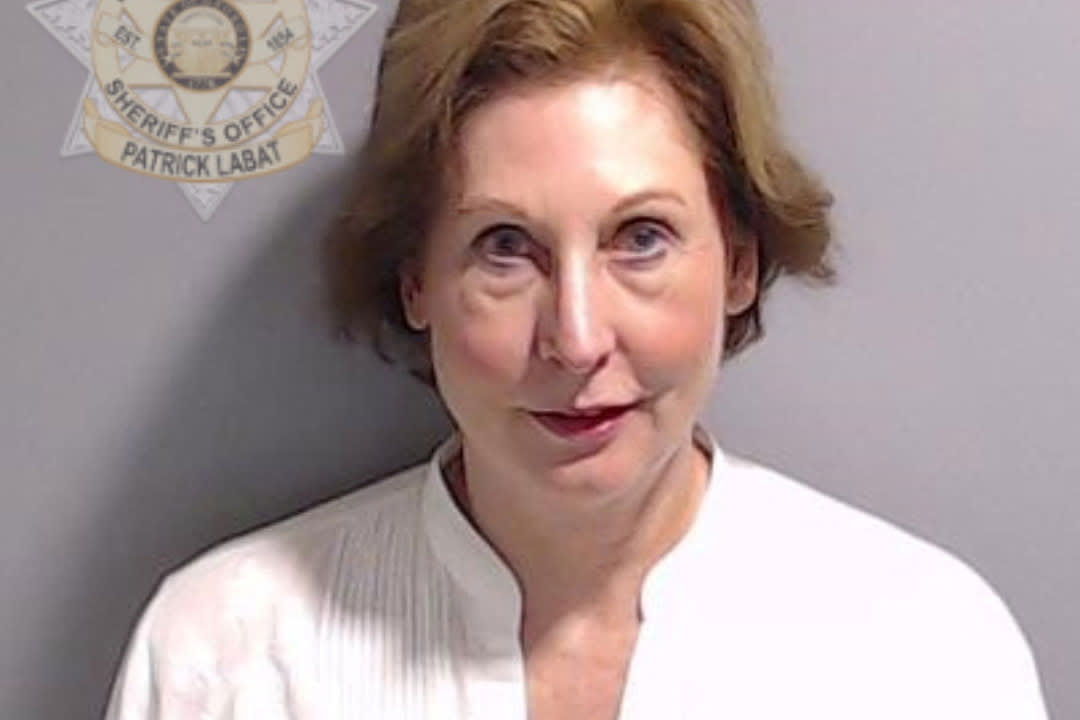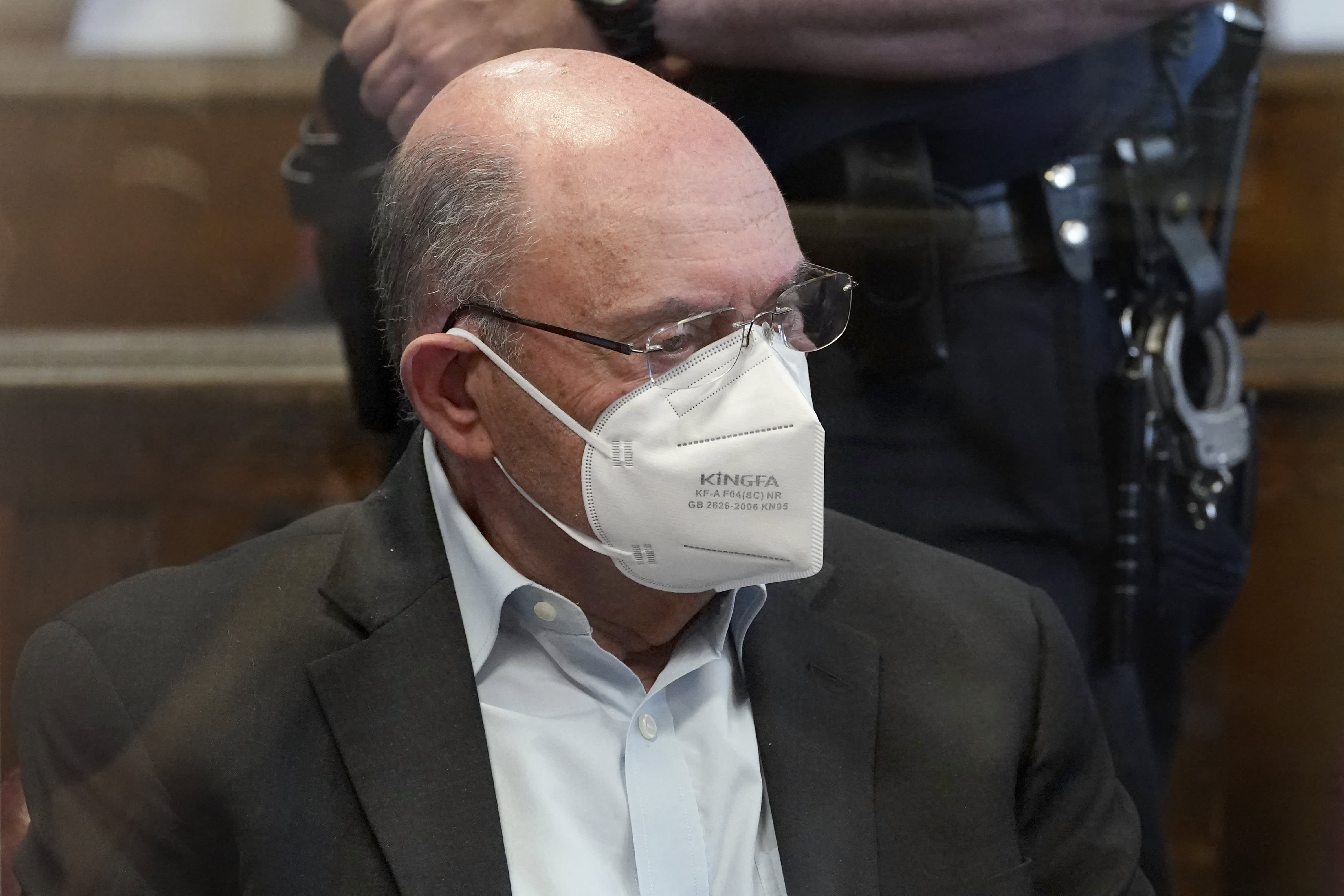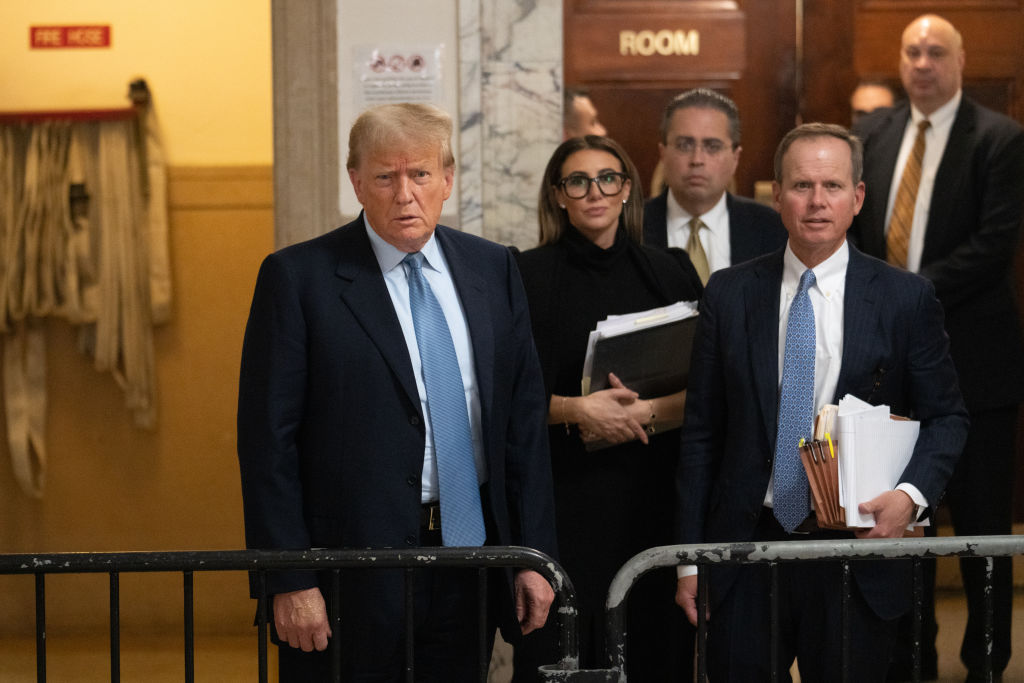What to Know
- The spotlight at Donald Trump’s civil fraud trial has turned to the former president’s son Eric. Documents and testimony Thursday suggested the scion envisioned a “lofty” value for a suburban New York golf course and was actively involved in appraisals he has said he doesn’t remember.
- The trial stems from New York Attorney General Letitia James’ claims that Donald Trump, his company and executives including Eric Trump fraudulently inflated the asset values on financial statements given to lenders, insurers and others.
- The Trumps deny the allegations. The former president says the documents actually underestimated the value of his prime properties.
The spotlight at former President Donald Trump's civil fraud trial turned Thursday to his son Eric, with testimony and documents suggesting the scion envisioned a “lofty” value for a suburban golf course and was actively involved in appraisals he has said he doesn't remember.
The trial stems from New York Attorney General Letitia James' claims that Donald Trump, his company and executives, including Eric Trump, fraudulently inflated asset values on financial statements given to lenders, insurers and others. The defendants deny the allegations, and the 2024 Republican presidential front-runner says the values actually were underestimated.
About a decade ago, Trump's companies sought appraisals of two of their properties in New York's suburban Westchester County — the Trump National Golf Club and an estate known as Seven Springs, according to documents and testimony Thursday.
Get Tri-state area news delivered to your inbox. Sign up for NBC New York's News Headlines newsletter.
At the time, the companies were considering what are known as conservation easements on the properties, according to David McArdle, an appraiser with the commercial real estate firm Cushman & Wakefield. A conservation easement is essentially an agreement to forgo development in exchange for a tax break.
McArdle said he was asked in 2013 to figure out what the golf course would be worth if 71 high-end townhomes were built there, and he got substantial input from Eric Trump, who's an executive vice president at the Trump Organization.
“Of course Eric Trump has lofty ideas on value," assuming the townhouses would easily sell for $1,000 per square foot, McArdle wrote in an email to a fellow appraiser at the time.
Eric Trump subsequently sent McArdle suggestions of properties to use for comparison, while arguing that none had “close to the amount, quality or kind of amenities” of the Trump course in Briarcliff Manor, New York.
As McArdle settled on a value around $45 million, he and lawyers for the Trump company strategized in email about how to present it to their client.
McArdle said Thursday that Eric Trump may have had a “more lofty value” in mind, but a higher number wouldn’t have been credible. The email discussion was a leadup “to finally tell Eric he should accept this value from the professionals,” McArdle testified.
McArdle then got a message from Eric Trump, saying that he’d spoke to one of the lawyers and telling McArdle to hold off sending the appraisal until further notice.
Trump's financial statements went on to list the golf course at values sometimes topping $100 million, according to James' lawsuit. The villas weren't built.
Donald Trump floated various plans over the years for Seven Springs, a historic mansion and 213-acre property that spans three Westchester County towns. After his development proposals met opposition, he pursued an easement.
McArdle was hired in 2014, through a lawyer for Trump's companies, to evaluate Seven Springs' value. The appraiser said the exercise assumed the estate could be divided into about two dozen building lots for luxury homes.
Once again, McArdle said, Eric Trump touted the property's attributes to him and suggested a supposedly comparable spread — a Connecticut development where lots sold for as much as $3 million apiece.
“He had a very high opinion of his property,” said McArdle, who said he eventually advised in a phone call that Seven Springs was worth up to $50 million. Eric Trump was included in and responded to emails arranging for McArdle to present his view.
A few months later, Donald Trump's financial statements valued Seven Springs at over $160 million, according to James' lawsuit.
When asked about McArdle in pretrial testimony this year, Eric Trump said he only “vaguely” recognized the man's name and didn't recall much, if anything, about the appraisals of Seven Springs or the golf course.
“I pour concrete. I operate properties,” Eric Trump said. “I don't focus on appraisals between a law firm and Cushman.”
Defense lawyer Lazaro Fields, in questioning McArdle, sought to establish that it's not uncommon for owners to talk up their properties' value to appraisers and for their opinions to differ.
“Absolutely,” McArdle said, “but ultimately, we’re the ones calling the value.”
Both Eric and Donald Trump have attended some of the trial but weren't there Thursday, when the court also heard about a $160 million refinancing loan on a Trump-owned Wall Street office building in 2015.
An internal document prepared by lender Ladder Capital said the “deal strengths” included Trump's stated net worth of nearly $5.8 billion, over $300 million of it in cash and other liquid assets — figures that reflected Trump's 2014 financial statement.
“The net worth statement is one of many things that we look at in the underwriting process. I wouldn’t say it was a key factor … it was a factor,” Ladder Capital executive Jack Weisselberg testified, explaining that “liquidity was what we were really paying attention to.”
Weisselberg is the son of former Trump company finance chief Allen Weisselberg.
The state attorney general is seeking $250 million and a ban on Trump and other defendants doing business in New York.
In a pretrial ruling, Judge Arthur Engoron found that Trump and his company engaged in fraud, and the judge ordered that a court-appointed receiver take control of some Trump companies. An appeals court has since at least temporarily blocked enforcement of that aspect of the ruling. If upheld, it could strip the ex-president of control over Trump Tower and other marquee properties.
Both Engoron and James are Democrats.




